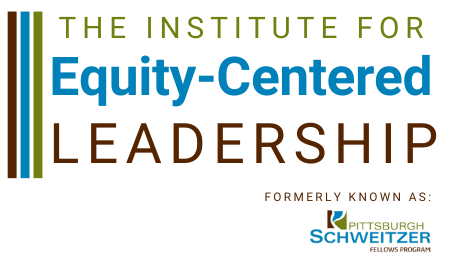Hannah Famili and Leila Oyekola have found their way from diverse backgrounds to the University of Pittsburgh audiology program. Leila grew up in West Africa, attending high school in Dakar, Senegal and eventually traveled to the United States for college. Hannah has strong ties to her father’s family in Iran and has traveled to his hometown. These experiences around the world instilled a sense of global community in both women and inspired them to pursue a life of service.
After taking an introduction audiology class during her undergraduate years at Pitt, Hannah took a class with Dr. Elaine Mormer. She quickly joined Dr. Mormer’s research lab and was inspired by her professor’s dedication to thinking creatively to help others. Leila started as a psychology major at the University of Maryland, knowing that she wanted to work in healthcare. She explored classes in communication disorders and was underwhelmed. Audiology combines her love of service with her love of technology.
As an undergrad at Pitt, Hannah heard about the Schweitzer Fellows Program and pursued a fellowship of her own. After learning that her peer was also interested, Hannah teamed up with Leila. The pair decided that working with an international population was important to both of them. Their project, HEAR-UP, is a continuation of a past Schweitzer project based out of the Squirrel Hill Health Center and Birmingham Free Clinic. Hannah and Leila will provide free hearing health services like hearing tests and hearing aid fittings and conduct informational sessions on hearing loss at the Homewood Community Health Center.
Hannah and Leila expect to work mostly elderly immigrant populations. They explain that many immigrants, especially those who are not fluent in English, don’t know what services they’re entitled to or don’t know where to go to have their hearing checked. In addition,Hannah and Leila noticed that immigrants who face a language barrier in the United States struggle to communicate their hearing problems or may not even know that their hearing has faded. As Hannah says, “a person with hearing loss is often the last person to know that they have hearing loss.”
Hannah and Leila get to see the positive impact that their work has on others immediately. Hannah says the greatest reward of their work is what she calls the smile measure: “seeing the smile on someone’s face after we’ve fit them with hearing aids.” Hannah and Leila believes that families and communities are stronger when those with hearing loss have their hearing restored.
Although they love their work, Hannah and Leila expect to face challenges in their work. They have already struggled to gain the trust of their communities. Leila explains that because the Homewood Community Engagement Center is a base for so many service projects, some patrons believe Hannah and Leila want to “use them for data.” She says she is focused on proving that she is there is to provide something, not take.
Despite any challenges they may face, Leila and Hannah are inspired by the legacy of Albert Schweitzer to adapt to new situations and view all life as sacred. As Leila says, “at the end of the day, the goal is to enrich the lives of others.”


































